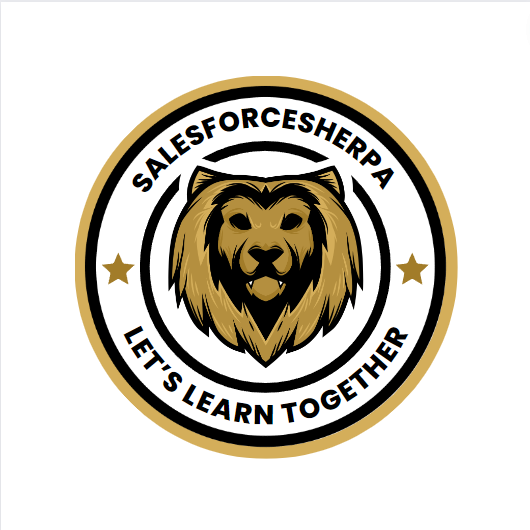The Power of Salesforce: Transforming Companies One Developer at a Time
 SalesforceSherpa
SalesforceSherpa
In today's fast-paced digital landscape, businesses are constantly seeking innovative solutions to stay ahead of the competition. Salesforce, a leading cloud-based customer relationship management (CRM) platform, has emerged as a powerful tool that can transform companies and revolutionize the way they operate. This article explores the role of Salesforce developers in driving this transformation and the impact they have on businesses worldwide.
Understanding Salesforce: A Brief Overview
Before delving into the influence of Salesforce developers, let's first understand what Salesforce is and its significance in the business world. Salesforce is a comprehensive CRM platform that enables businesses to manage and analyze customer interactions, sales, and marketing efforts in a centralized and efficient manner.
Key Features and Advantages
Salesforce boasts an array of features, including lead management, sales forecasting, workflow automation, and customizable reports. Its cloud-based infrastructure ensures seamless accessibility, making it a preferred choice for businesses of all sizes. Additionally, regular updates and new features enhance the platform's capabilities, ensuring users always have access to cutting-edge technology.
Salesforce Ecosystem
The Salesforce ecosystem extends beyond its primary CRM platform, encompassing a vast marketplace of third-party applications and integrations known as the AppExchange. This ecosystem empowers businesses to expand their Salesforce functionalities, catering to specific needs and requirements.
The Role of Salesforce Developers
Who are Salesforce Developers?
Salesforce developers are skilled professionals who specialize in designing, customizing, and implementing solutions on the Salesforce platform. They possess a deep understanding of programming languages, such as Apex and Visualforce, which are essential for developing custom functionalities within Salesforce.
Their Importance in Transforming Companies
Salesforce developers play a pivotal role in transforming companies by tailoring the platform to suit their unique business processes. They collaborate with stakeholders to understand requirements, create custom workflows, and integrate third-party applications to enhance efficiency and productivity.
Required Skills and Expertise
To be effective, Salesforce developers must possess a blend of technical and business acumen. They need to be proficient in various programming languages, have a solid grasp of CRM concepts, and be adept at problem-solving and communication.
Transforming Companies with Salesforce: Real-World Examples
Now, let's explore some real-world examples of companies that have undergone significant transformations with the help of Salesforce.
Case Study 1: Company X's Sales Boost
Company X, a global sales organization, was facing challenges in managing its vast clientele efficiently. Salesforce developers worked closely with the company's sales team to implement a customized CRM solution. The platform streamlined lead management, automated follow-ups, and provided real-time insights, resulting in a remarkable increase in sales revenue.
Case Study 2: Streamlining Operations at Company Y
Company Y, a growing startup, was struggling with disjointed systems, hindering productivity and collaboration. Salesforce developers integrated various business processes into a unified platform, eliminating silos and optimizing workflow. The transformation not only increased productivity but also boosted employee morale and engagement.
Case Study 3: Enhancing Customer Service at Company Z
Company Z, a service-oriented business, aimed to enhance its customer service capabilities. Salesforce developers designed a customer-centric CRM solution that improved ticket management, reduced response times, and enabled personalized customer interactions. As a result, customer satisfaction and loyalty soared.
How Salesforce Enhances Business Efficiency
Salesforce's impact on businesses goes beyond customer management. It enhances overall business efficiency in several ways:
Data Management and Integration
Salesforce provides a centralized database for storing and managing customer data. Its seamless integration capabilities enable businesses to connect Salesforce with other essential applications, ensuring a cohesive and unified data ecosystem.
Automation and Workflow Optimization
Salesforce's automation tools streamline repetitive tasks, freeing up employees to focus on more critical responsibilities. Automated workflows ensure that processes run efficiently and consistently, minimizing human error and maximizing productivity.
Customer Relationship Management (CRM)
Salesforce's core function is its robust CRM capabilities, which enable businesses to build and maintain strong customer relationships. From lead generation to after-sales support, Salesforce facilitates personalized and effective communication, driving customer loyalty and retention.
Harnessing the Power of Customization in Salesforce
Tailoring Solutions to Specific Business Needs
One of the key strengths of Salesforce lies in its customizability. Businesses can tailor the platform to align with their specific processes, branding, and customer journey. This flexibility ensures that Salesforce can adapt to the unique requirements of any organization.
The Role of Salesforce Developers in Customization
Salesforce developers play a crucial role in the customization process. They collaborate with stakeholders to understand business processes and identify areas where customization can bring the most value. With their technical expertise, developers create custom objects, fields, and workflows, ensuring that Salesforce aligns seamlessly with the company's operations.
The Future of Salesforce in Company Transformations
Trends and Innovations
As technology continues to advance, Salesforce remains at the forefront of innovation. The platform regularly introduces updates and new features, catering to the evolving needs of businesses. Artificial intelligence, machine learning, and data analytics are some of the cutting-edge technologies that Salesforce is integrating to drive even greater business transformation.
Growing Demand for Salesforce Developers
As companies increasingly recognize the potential of Salesforce, the demand for skilled developers continues to grow. The role of Salesforce developers will become increasingly critical in helping businesses leverage the platform's full potential.
Conclusion
Salesforce has proven itself as a game-changer in the business world, transforming companies across industries and geographies. Its versatility, customizability, and robust features make it an indispensable tool for businesses aiming to enhance efficiency, boost sales, and foster customer loyalty. As we look ahead, the role of Salesforce developers will remain vital in guiding companies through their digital transformation journeys.
FAQs
1. What is Salesforce? Salesforce is a cloud-based customer relationship management (CRM) platform that allows businesses to manage and analyze customer interactions, sales, and marketing efforts effectively.
2. How do Salesforce developers contribute to company transformation? Salesforce developers customize the platform to suit a company's unique business processes, streamlining operations, and enhancing efficiency.
3. Can Salesforce be integrated with other applications? Yes, Salesforce has seamless integration capabilities, allowing businesses to connect it with other essential applications for a unified data ecosystem.
4. What kind of skills do Salesforce developers need? Salesforce developers require technical proficiency in programming languages like Apex and Visualforce, along with a solid understanding of CRM concepts and excellent problem-solving abilities.
5. How does Salesforce enhance customer relationship management? Salesforce's robust CRM capabilities facilitate personalized communication with customers, helping businesses build and maintain strong relationships, leading to improved customer loyalty and retention.
Subscribe to my newsletter
Read articles from SalesforceSherpa directly inside your inbox. Subscribe to the newsletter, and don't miss out.
Written by
